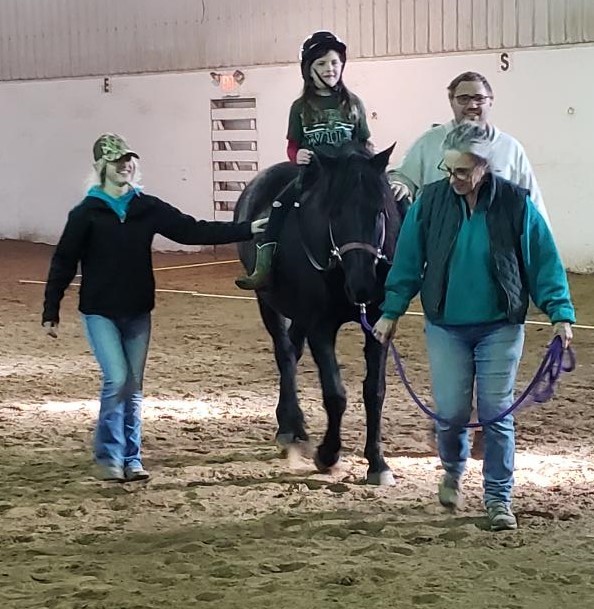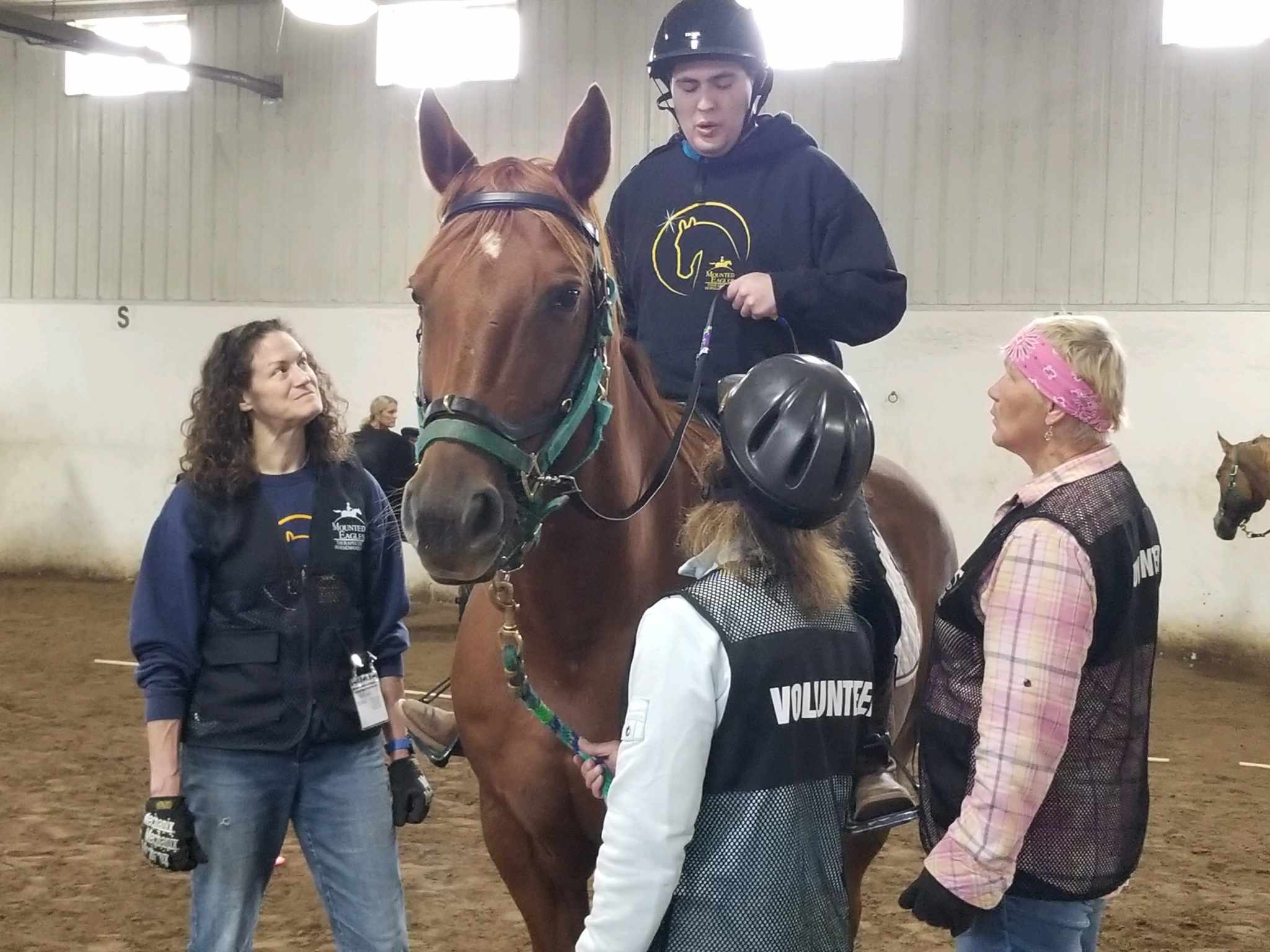
About Therapeutic Riding
Discover a transformative journey that began over 50 years ago in Europe. Therapeutic Horsemanship harnesses the rhythmic movement of horses to enhance physical, emotional, and mental well-being.
Experience Transformation with Therapeutic Horsemanship
Physical Wellness: Benefit from improved flexibility, balance, and muscle strength, especially for those with physical disabilities. The gentle, rhythmic motion of horseback riding offers a unique and effective form of exercise.
Emotional Empowerment: Forge a special bond with our horses, fostering increased confidence, patience, and self-esteem. The emotional rewards extend beyond the arena, positively impacting daily life.
Universal Impact: Our programs cater to diverse conditions, providing universal benefits. Research-backed and endorsed by medical professionals, Therapeutic Horsemanship offers a holistic approach to well-being.
Join us at Mounted Eagles and embrace the joy of healing through the unique connection between horses and humans.
History of Therapeutic Riding
The roots of therapeutic riding trace back to the 1600s, with historical references acknowledging the physical and emotional benefits of horseback riding. However, it was a pivotal moment in 1952 when Liz Hartel of Denmark, paralyzed from polio, clinched a silver medal in dressage at the Helsinki Olympic Games. This extraordinary achievement captured the attention of medical and equine professionals, marking a turning point for therapeutic riding.

The rehabilitation potential of horseback riding gained prominence in England and quickly spread to North America. In the 1960s, the first centers dedicated to therapeutic riding were established. The formation of NARHA (North American Riding for the Handicapped Association) in 1969 marked a significant milestone. Starting with four member centers and 60 individual members, NARHA has since evolved into the globally recognized Professional Association of Therapeutic Horsemanship International (PATH Intl.).
Through the work of 794 member centers and more than 3,928 professionals credentialed through PATH Intl., 46,629 children and adults, including more than 5,200 veterans, find a sense of health, wellness, a sense of independence and fun through EAS.
There are 39,317 volunteers, 5,911 equines and thousands of contributors from all over the world making a difference in people’s lives.


